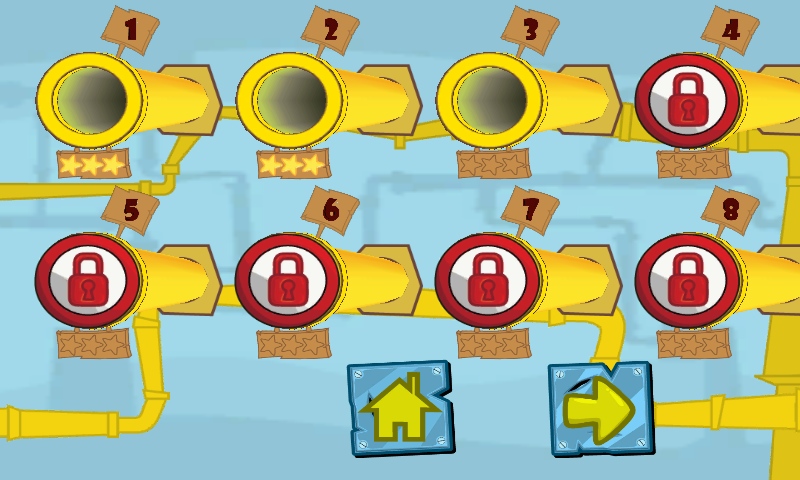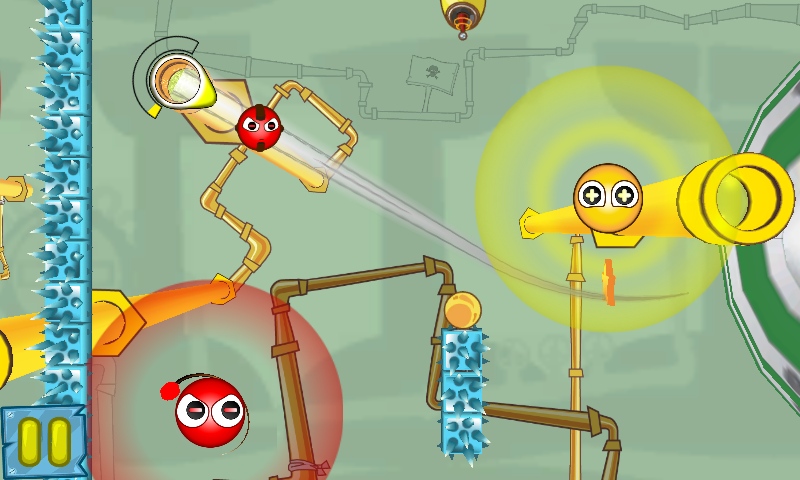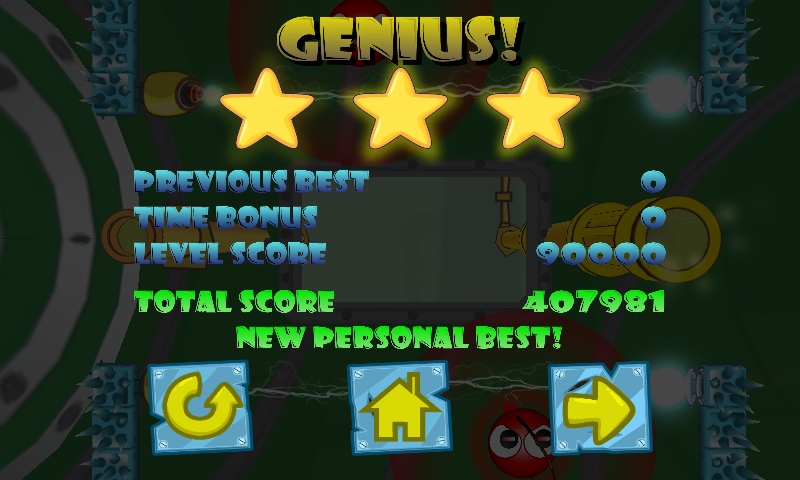Review: Fling Theory
Score:
71%
Fling Theory, from Coding Jar Studios, hands you a number of puzzle based levels, and asks you to throw a single atom around the level, collecting coins and clearing the way so you can get the atom to the exit. Is that enough for a hit game?
Version Reviewed: 1.0.1.2
Buy Link | Download / Information Link

The cynical reviewer might simply dust off the checklist of physics based puzzle games and note that Fling Theory ticks many of the boxes. It's a level based game where you set the angle of travel; where you navigate through various obstacles picking up items; and where you have to take multiple attempts; there's a three star rating system at the end of a collection of levels (as opposed to after every stage in a level), and there's a tricky mix of being able to see what you need to do... compared to actually managing to do it.
There no getting away from the fact that Fling Theory does have a clinical feel about it. I can imagine a room of developers in front of a whiteboard, with a list of successful mobile games on one side, cherry picking the elements they like from those and solving the jigsaw they had built up on the board. It wouldn't have happened that way (anyone who knows IP law will attest to that), but Fling Theory does have many moments where you could swear you were playing a different game.

Fling Theory is a collect and escape style of game, where you need to pick up all the coins on a stage before reaching the end of level pipe. It's never quite clear if you are playing the part of the atom, or simply manipulating the equipment to throw the single atom around the level - but the end result is the same. The friendly atom needs to move through the field of play, but thanks to what I can only presume are quantum effects, when you crash into an obstacle you are sent back to the start and some of the level is reset - coins to collect are put back in place, but any damage you have caused remains.
What does change between 'throws' can be the electrical charge on your atom, or on other atoms around the level. You know that opposites attract, and negatives repel, so with that in mind you can start curving your atom around the level. Passing quickly and close by an atom will give you a bit of a bend, taking a slower path, even if it is further away, might result in more of a bend given to your trajectory.
To help you gauge this, when you decide on the strength and direction of the throw on the atom (with a slide of your finger), you'll see a trace of the first part of your route and how the terrain will affect the path. Of course after that you're going to be on your own, with a mix of guesswork followed by trial and error.
The control system is easy to use, and the 'principles of movement' around a level make for some great gameplay options. And this is where I think Fling Theory slips up. The level design, restricted as it is to the height of the screen in landscape mode, just doesn't feel as inventive as the concept of the game. It far too often falls into the simple routine of 'destroy the shield generators', 'set up electrical charge' and 'throw the atom down the only obvious route you can see, that amazingly reaches the end of the level after some twists and turns'.

I do want to credit the developers for their continued support, I've seen two updates to the code during April while keeping this on the back burner to review, all improving the code and the game. That sort of activity should always be noted, and shows a love for game (or app ) being developed.
To sum it up, Fling Theory is technically wonderful, with everything falling into place as required. Graphics are clear and distinct, the controls are fine, and while the level design has room for improvement, it's certainly above average. Unfortunately, I don't think everything binds together to create a cohesive experience. There's no magic spark here to take the game from above average to 'special'. That's not to say that Coding Jar can't manage it with their next release, which I'll be watching for, but Fling Theory for me just misses my personal mark.
Reviewed by Ewan Spence at
